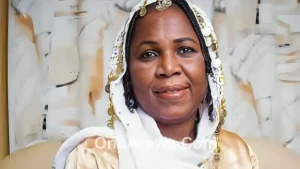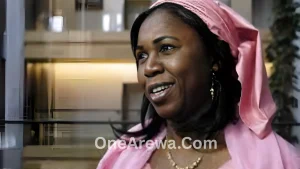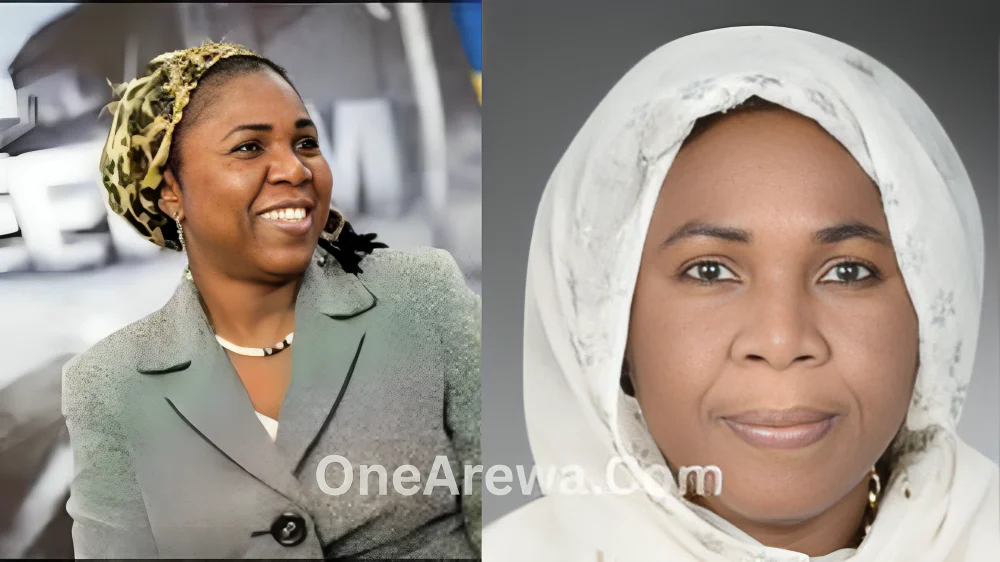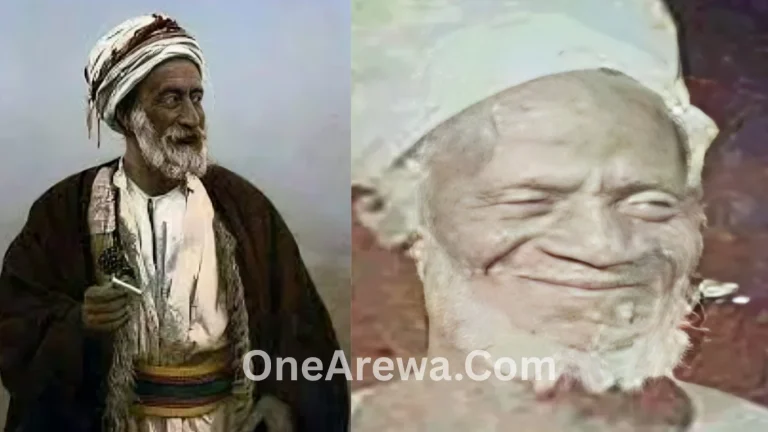Hauwa Ibrahim: Nigeria’s Fearless Human Rights Lawyer and Activist
Hauwa Ibrahim: Nigeria’s Fearless Human Rights Lawyer and Activist
Hauwa Ibrahim, born in 1968 in Northern Nigeria, rose from a poor village in Gombe State to become the first female lawyer from Northern Nigeria, defying cultural norms that often saw girls married off by age 12 or 13.
In the 1990s and early 2000s, she pursued education against great odds, supporting herself through hawking and other jobs.
As a fearless human rights lawyer and activist, Hauwa specialized in defending women and children subjected to harsh Sharia law punishments, notably defending Amina Lawal in the early 2000s against a death sentence by stoning.
Her work, spanning 19 northern states, brought international attention to abuses under Sharia law while advocating for justice rooted in Islamic principles.
Despite facing personal risks, Hauwa remains a powerful advocate for women’s education, empowerment, and legal rights, influencing Nigeria’s legal system and inspiring generations.

Wiki Profile
| Category | Details |
|---|---|
| Full Name | Hauwa Ibrahim |
| Date of Birth | January 20, 1968 |
| Age | 57 years (as of 2025) |
| Place of Birth | Gombe State, Nigeria |
| Nationality | Nigerian |
| Profession | Human rights lawyer, author, educator |
| Notable Roles | – Senior International Scholar-in-Residence, Wellesley Centers for Women |
| – Founder and President, The Peace Institute | |
| – Senior and Founding Partner, ARIES Law Firm, Abuja | |
| – Visiting Professor at Harvard, Yale, Saint Louis University | |
| Education | – Juris Doctor (J.D.), Doctor of Juridical Science (S.J.D.), American University |
| – Master of Laws (M.L.), American University | |
| – Master of Studies (MSt) in Women’s Studies, University of Oxford | |
| Awards | – 2005 European Parliament Sakharov Prize for Freedom of Thought |
| – Knight of the Order of Merit of the Italian Republic | |
| – Honorary Citizen of Paris | |
| – Margaret Brent Women Lawyers of Achievement Award | |
| Notable Cases | Defended over 150 women and children under Sharia law including Amina Lawal, Safiya Hussaini |
| Initiatives | – Founder of “Mothers Without Borders” project to divert youth from violent extremism |
| – Organized STEAM summer camps in Nigeria and Liberia | |
| Publications | – “Practicing Shariah Law: Seven Strategies for Achieving Justice in Shariah Courts” (2012) |
| – Four additional books on human rights and Sharia law | |
| Languages | English, Hausa, Arabic |
| Personal Life | Married with two sons; daughter of a mullah from Gombe State |
| Legacy | Pioneer in human rights law under Sharia, advocate for women’s rights and justice reform |
Check Out: Zaynab Alkali: Trailblazing Nigerian Author and Africa’s First Female Novelist in English

Hauwa Ibrahim’s Early Life and Background
Hauwa Ibrahim was born in 1968 in a small, poor village in Gombe State, Northern Nigeria. She was raised in a deeply religious Muslim family; her father was one of the local mullahs who called people to prayer.
In her village, traditional norms dictated that girls should not go beyond elementary school and were expected to be ready for marriage by the age of 12 or 13.
However, Hauwa’s mother came from a somewhat more enlightened background and supported education for her daughters.
While her sister went on to high school and married at around 17, Hauwa refused to marry young and instead chose to continue her education.
Despite limited financial resources and societal pressure, Hauwa was determined to study.
She supported herself by hawking food items and picking roots from the mountains to sell, using the money she earned to pay for her schooling rather than preparing for marriage.
This determination set her on the path to becoming the first female lawyer from Northern Nigeria and a fearless defender of human rights, especially for women facing harsh Sharia law punishments.

Hauwa Ibrahim: Education and Determination
Hauwa Ibrahim’s journey in education was marked by resilience and unwavering determination.
Despite the traditional expectations in her community that girls should marry early, she insisted on continuing her studies.
She completed her secondary education against great odds, often financing her schooling by hawking food and gathering herbs to sell.
Hauwa went on to study law at Ahmadu Bello University in Zaria, one of Nigeria’s premier institutions.
After graduating, she was called to the Nigerian Bar in 1993, becoming one of the first women lawyers from Northern Nigeria.
Her strong commitment to justice and human rights fueled her career, especially her focus on defending women and marginalized people under Sharia law.
Hauwa Ibrahim’s Legal Career and Activism
Hauwa Ibrahim began her legal career with a passionate focus on human rights, particularly defending women accused under Nigeria’s Sharia penal code.
She became widely known for her pro bono work on high-profile cases involving women sentenced to death by stoning, flogging, or other harsh punishments.
Notably, she was the lead attorney for Amina Lawal in 2002, successfully appealing a death sentence for adultery, a case that drew international attention.
Hauwa traveled extensively across Northern Nigeria, often reaching remote villages by camel or donkey, to represent clients who lacked access to fair legal representation.
She also took on cases involving young boys sentenced to amputation.
Throughout her career, she faced threats and intimidation but remained fearless in fighting for justice and fairness, advocating for the proper application of law and the protection of human rights in a deeply patriarchal and conservative society.








